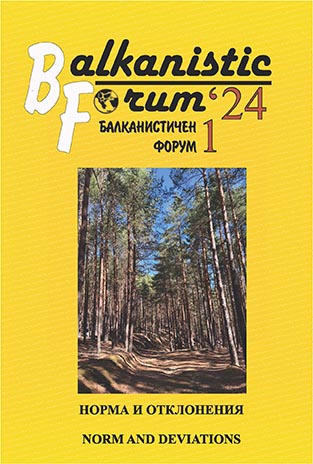Motherhood – The Quiet Rebellion of Utopia in Megan Hunter’s The End We Start From
Motherhood – The Quiet Rebellion of Utopia in Megan Hunter’s The End We Start From
Author(s): Elena Andonova-KalapsazovaSubject(s): Language and Literature Studies, Studies of Literature, Romanian Literature, Theory of Literature
Published by: ЮГОЗАПАДЕН УНИВЕРСИТЕТ »НЕОФИТ РИЛСКИ«
Keywords: utopia; dystopia; motherhood; emotions; Levinas
Summary/Abstract: The blurring of the boundaries between utopia and dystopia and the weaving of utopian hopes and possibilities into narratives seen as belonging to the genre of the dystopian novel has been a characteristic of the latter for a long time. Overviews of developments in dystopian literature in the twentieth and the twenty-first century have noted instances of this phenomenon ranging from works in which pockets of resistance to dystopian worlds carry with them hopes for a utopian future to ones in which utopian hope is read in the faces of a handful of survivors who have heroically emerged from among the ruins of a world struck by ecological disaster. The present article offers a reading of Megan Hunter’s debut novel The End We Start From as a daring act of not just hopefully pointing toward but of actually growing a utopian world in the midst of an environmental catastrophe, of creating a utopian Noah arc that successfully navigates the dystopian world of apocalyptic deluge and chaos. The analysis will map the ways in which the account of the experience of motherhood pushes that of the catastrophe and its impact on the world to the periphery of the narrative. The emotional experience of motherhood thus textually foregrounded in the novel is seen as enacting a quiet rebellion against dystopia as it expands into a space in which a Levinasian notion of utopia contained within the care for the Other is fleshed out, while dystopian reality is reduced to distant, random, fragmented echoes.
Journal: Балканистичен Форум
- Issue Year: 33/2024
- Issue No: 1
- Page Range: 252-265
- Page Count: 14
- Language: English
- Content File-PDF

